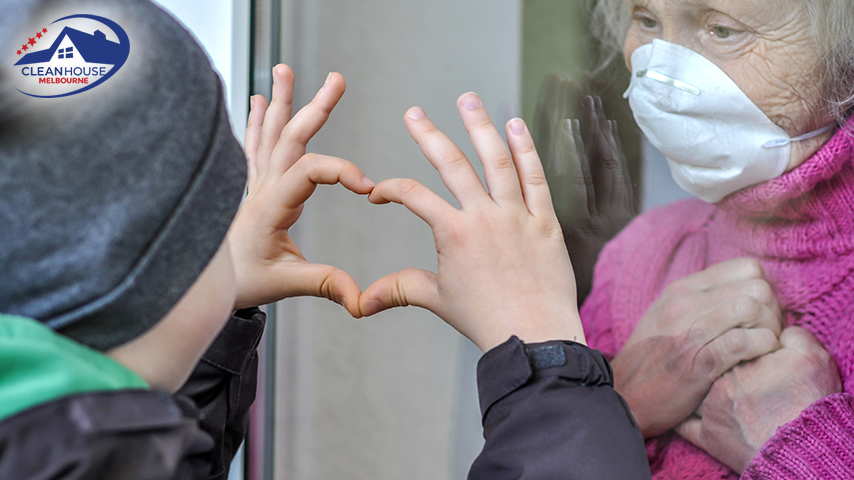Everyone is exposed to the risk of getting COVID-19, so you must protect yourself and others. Most especially, family, friends, employer, employee, and residents need to come together to protect aged care cases increase. Experts and advocates are requesting huge investment in the aged care sector as the elderly care homes have experienced over 1,000 coronavirus cases and increasing death tolls. One of the many aged care facilities that have been greatly affected by COVID-19 in Australia is located in the north of Melbourne, with residential care connected to over 1,000 cases and 160 deaths.
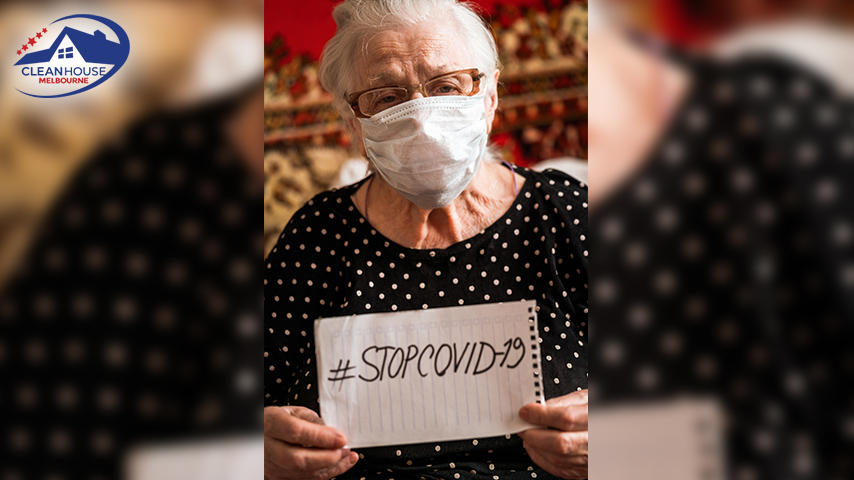
Stopping the Increase in COVID Aged Care Cases
Those with a higher risk of severe illness from COVID-19, and those living with them must protect themselves from contracting the virus. The major way to protect yourself and to help slow down the spread of COVID-19 is to:
- Reduce your interactions with other people as much as you can,
- Take preventive measures to avoid contracting COVID-19 when you interact with others, and
- Keep your environment clean with deep cleaning and disinfection.
Now let us take more look at these:
As an elderly or any other residents, are you looking to visit family and friends in-person? Below are the things to remember to keep your visit as safe as possible for everyone:
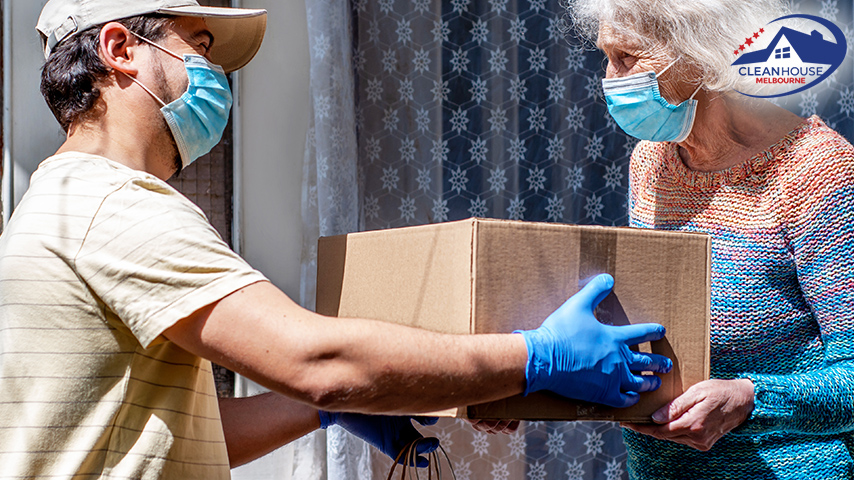
When you should delay or cancel a visit:
- If you or your visitors are experiencing symptoms of COVID-19 or have been in contact with an infected person in the last 14 days.
- Anyone who has closely contacted a COVID-19 infected person should remain indoor and lookout for symptoms.
Generally, interacting with more people leads to more close interaction with them, and prolonged interaction leads to a higher risk of spreading COVID-19. So decide:
- How many people do you plan to interact with?
- Can you maintain 6ft space between you and other people?
- Will you be indoors or outdoors?
- How long will you be interacting with people?
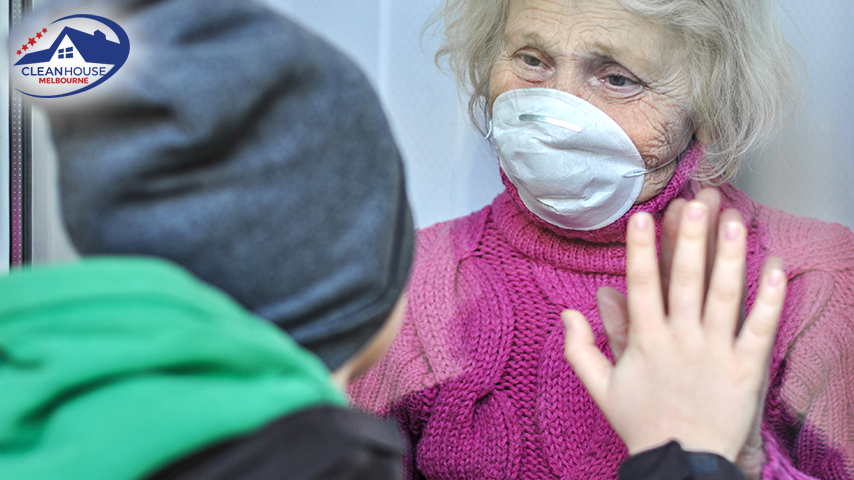
Maintaining physical distancing during your visit:
- Maintain an outdoor visit with your family and friends when possible. If this is not possible, be sure to hold the visit in a spacious (large enough to keep physical distance) and a well-ventilated room (windows and/or doors opened).
- Giving space between tables and chairs arrangement for physical distancing. You can group people from the same household together, and there is no need for them to be six feet apart from one another.
- Go with social distancing-enabled activities such as yard games or sidewalk chalk.
- Endeavor to restrict close contact with your visitors. For instance, no handshakes, hug, or elbow bump. Instead, wave and greet them verbally. If possible, stay away from those who are not putting on masks or ask those around you to put on masks.
- Make a list of those who were present during the visit and the time it occurred. This will simplify contact tracing if anyone becomes sick.
Wear masks:
- Put on masks to cover the nose and mouth. The importance of masks cannot be denied, especially when it is impossible to maintain six feet from others or when everyone is indoors.
- Masks may help reduce the spread of COVID-19 and help prevent those who do not know they have the virus from spreading it.
- Putting on a mask helps protect others around you if you have the virus, while others put on the same to protect you if they are infected.
- Who should NOT use masks? children under two years of age or people with breathing issues, unconsciousness, or are not capable or those unable to remove the mask without help
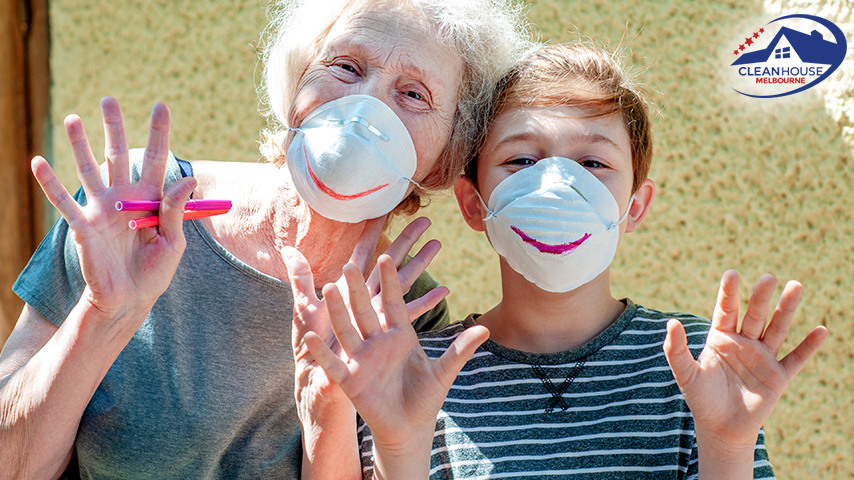
Wash hands regularly:
- Everyone involved in the meeting should take 20 seconds or more before and at the end of the visit, and any time you think you may have come in contact with germs.
- In case there is no soap and water for outdoor visits, or activities, get and use sanitizer that contains a minimum of 70% alcohol. Use it to cover all surfaces of your hands and rub them together till the dry.
- Make sure your visitors wash or sanitize their hands before they are served or start eating.
- Get one-use hand towels or paper towels for hands drying so that your visitors won’t have to share towels. Prepare a no-touch trash bin for visitors to use.
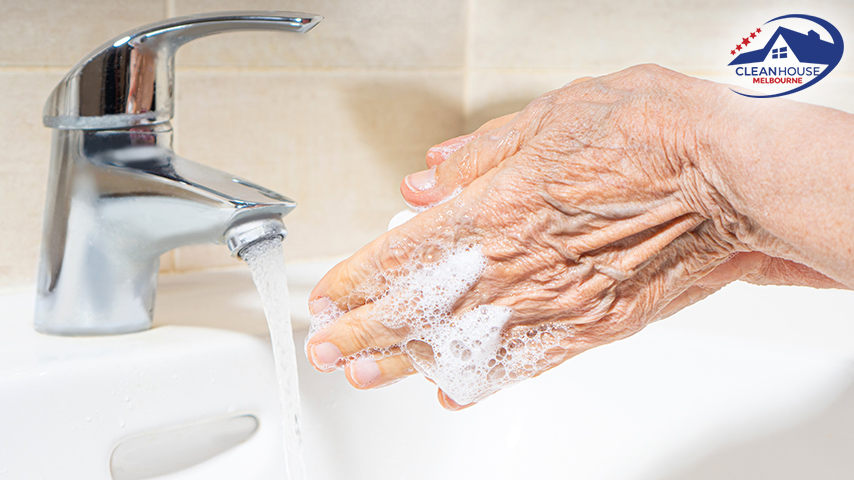
Restrict contact with often touched surfaces or shared objects:
- Ask your visitors to come with their own food and drinks, if possible.
- Clean And Disinfect most-touched surfaces and any shared objects as you use
- In case you want to use any reusable shared items such as table cloths, linen napkins, seating covers, and more, be sure to wash, clean, and sanitize them after the whole visit.

Things to consider before you go out to the Public
You may also consider resuming some activities, attending events, and running errands as businesses and communities are opening up in Victoria. Everyone risks exposure to the virus no matter how small; so you need to know the risks and the best way to remain as safe as possible. People suffering from severe illness as a result of COVID-19, and people living with the aged should think of their level of risk before going out and make sure they take protective measures.
If there is no way to protect yourself, consider staying away from activities that wouldn’t allow physical distancing. Everyone should follow steps to prevent themselves from contracting and spreading COVID-19 to protect themselves and those with a higher risk of severe illness. Generally, interacting with more people leads to more close interaction with them, and prolonged interaction leads to a higher risk of spreading COVID-19.
- Be sure to practice daily preventive actions if you will be engaging public activities.
- The following items should always be kept with you and use when going out: a mask, 70% or more alcohol-based hand sanitizer, and tissues.
- Stay away from people that are not putting on masks or ask other people around you to put on masks.
How to remain Healthy during the coronavirus (COVID-19) Pandemic
It is important to stay healthy during the coronavirus pandemic, as an elderly or others. Consult your healthcare company about the status of your vaccinations and other preventive services to help prevent you from getting sick with other diseases.
- Those with a higher risk of severe illness from COVID-19 and older adults need to receive recommended vaccinations to prevent influenza and pneumococcal disease.
- Do not forget that staying physically active and practicing healthy habits are essential to coping with stress.
Those with underlying medical issues should not stop following their treatment plans:
- Continue your medicines and not adjust your treatment plan without consulting your healthcare provider.
- Get a minimum of a 30-day supply of medical prescription and non-prescription. Consult a healthcare company, insurer, and pharmacists about obtaining additional supply (not exceeding 30 days) of prescription medicines, and possibly, to limit your visits to the pharmacy.
- Under no circumstance (not even because of COVID-19), should you delay obtaining emergency care for your underlying medical issue? There are infection prevention plans in place with emergency departments to protect you from contracting COVID-19 in case you need care.
- Contact your healthcare provider in case you have any worries about your existing medical issues or if you get unwell and think it may be COVID-19.
- You don’t have a healthcare provider? Call the nearest community health center or health department of Victoria.
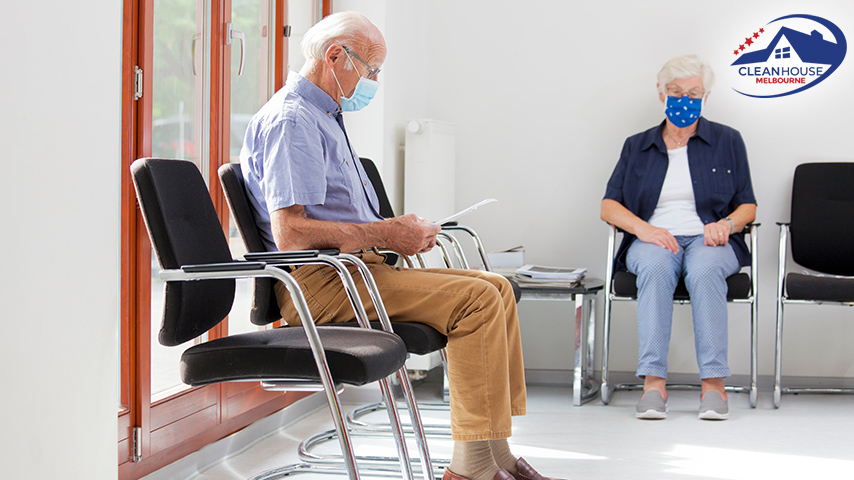
Develop a Care Plan
A care plan summarizes your health conditions, medicines, emergency contacts, healthcare providers, and options for end-of-life care, such as advance directives. Consult a doctor to complete your care plan and, if possible, with a home nurse’s aide or family member’s help. There can be more beneficial to a care plan beyond this COVID-19 pandemic. Your care plan can be updated annually or any time there is a change to your health or medicines. With care plans, you can limit visits to the emergency room, and being hospitalized and improve general medical management for those with serious health conditions, leading to a more quality life. Having a care plan during the COVID-19 pandemic is an essential part of getting ready for an emergency.
Using Personal Protective Equipment (PPE) during Cleaning
Gloves should be used when cleaning and disinfecting. You don’t necessarily need to put on eye protection, gowns, and masks when performing routine cleaning. Always stick to the manufacturer’s instruction about the use of PPE when applying disinfectants. A surgical mask and eye protection should be used. It will act as a barrier blocking you from touching your face with probably contaminated hands and fingers, whether you wear gloves or not when cleaning and disinfecting potentially infected and confirmed cases.
Put on full-length disposable gown alongside surgical mask, gloves, and eye protection when cleaning and disinfecting suspected and confirmed COVID-19 cases. There is obvious contamination with droplets or other body fluids. Obtain advice from the consultant of your work’s health and safety on proper procedures for putting on PPE.
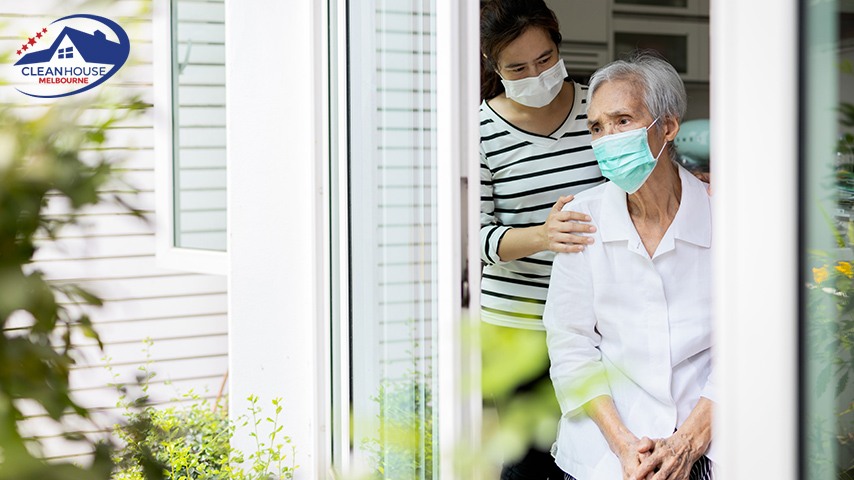
Aged Care Cleaning and Disinfection
Disinfection involves eliminating or deactivating bacteria and viruses, causing disease on surfaces, as in the case of COVID-19. Cleaning will only reduce the number of bacteria on surfaces to certain levels and is not potent against some viruses. Although cleaning is normally effective enough for situations with not many risks, it is more advisable to disinfect surfaces with a higher risk of contamination, especially if such contamination is similar to coronavirus or another highly infectious virus. Learn more about various services for your safe and healthy environment as discussed below:
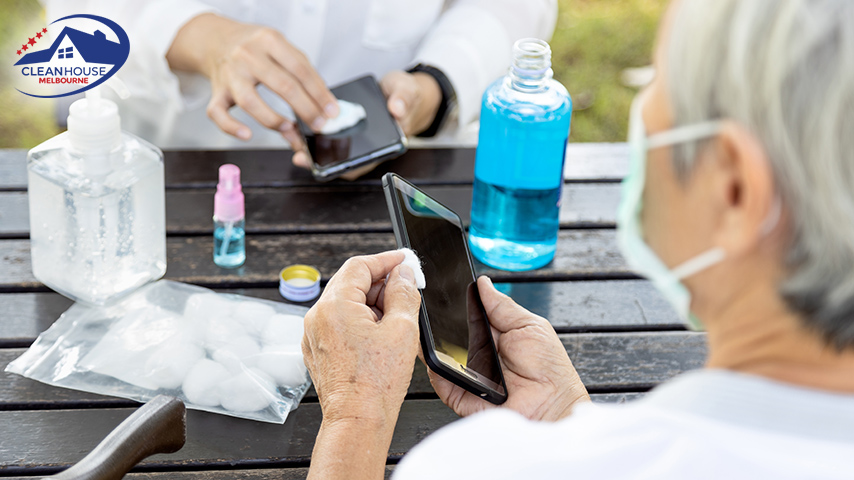
- Cleaning: This involves the removal of germs, organic matter, and dirt from surfaces. Cleaning alone doesn’t get the germs eliminated, but it does slow down the risk of spreading infection by reducing the number of germs on surfaces.
- Disinfection: This involves the use of chemicals to eliminate germs on surfaces. This doesn’t really clean dirty surfaces or get rid of germs; however, disinfection goes on to reduce the risk of transmitting the infection by eliminating germs that are still on the surfaces after cleaning. Cleaning before disinfecting is the right order to get rid of particles and dirt that can lower the effectiveness of disinfectants against germs.
Spread or transmission of coronavirus mostly occurs through direct contact with respiratory droplets than through surfaces that are contaminated. The risk of contracting COVID-19 when cleaning is not as high as the risk of contracting an infected person who may be sneezing or coughing without you or the person putting on proper personal protective equipment.
Frequently touched surfaces such as light switches, taps, door handles, kitchen surfaces, desks, tabletops, TV remotes, toilets, cupboard handles, and kitchen surfaces should be routinely cleaned in age care homes and facilities. Additionally, clean visibly soiled surfaces and fittings instantly you spill something on it, you may apply a disinfectant right after deep cleaning.
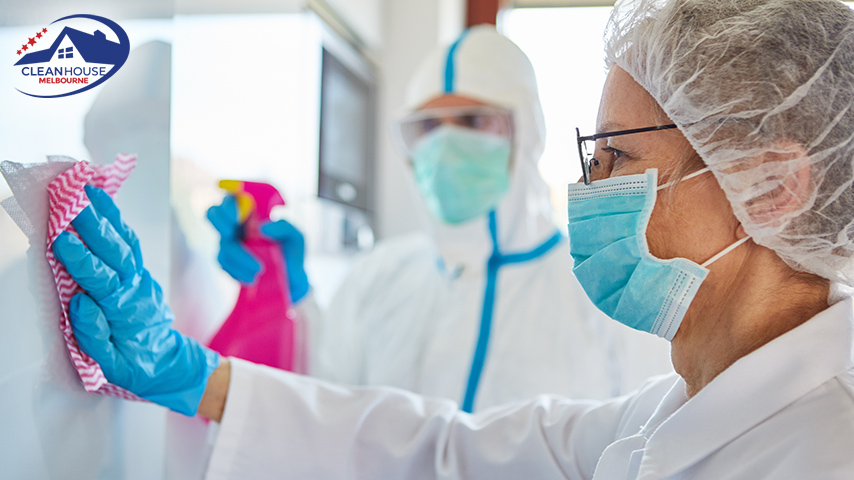
Are you in search of Aged Care Cleaning and Disinfection Services in Melbourne?
Professional cleaning companies have adequate experience and have undergone training and have the right equipment to offer their service even to high-risk circumstances as in the case of aged care. A professional cleaning company with a good reputation will put protocols in place to make sure they comply with the current guidelines on COVID-19 from the government by applying the right practices during cleaning and disinfection of surfaces.
Professional cleaning services have the capability to evaluate the risk of your aged care home and increase your existing cleaning routine to reduce the increased risk of exposure to COVID-19 and another highly transmissible virus.

Why Clean House Melbourne?
At Clean House Melbourne, we are always working to keep up with the latest on the pandemic issue and continually re-evaluate our technique to satisfy our customers’ needs. Our team of experienced and committed professional cleaners can help mitigate the stress and anxiety out of making sure your aged persons’ environments are properly cleaned and disinfected; protecting them from contact rampaging virus.
FAQs about Covid-19 Cleaning and Sanitation for Aged Care Facilities:
- How can aged care facilities reduce COVID-19 cases?
Implement strict hygiene protocols, limit visitor access, and ensure proper PPE usage for all staff. - Why is limiting visitors important in aged care homes?
Reducing visitor numbers minimises the risk of virus transmission to vulnerable residents. - How often should cleaning occur in aged care facilities?
High-touch surfaces should be cleaned multiple times a day to prevent contamination. - What role does PPE play in managing COVID-19 in aged care?
PPE, such as masks and gloves, helps protect both staff and residents from exposure. - Can training staff improve COVID-19 management?
Yes, proper training ensures staff follow best practices for infection control. - Why is hand hygiene crucial in aged care settings?
Regular handwashing by staff and residents prevents virus spread through contact. - Should aged care facilities isolate infected residents?
Yes, isolating those with symptoms or confirmed cases reduces spread within the facility. - What cleaning products are recommended for aged care during COVID-19?
Use hospital-grade disinfectants approved by health authorities for effectiveness. - How does proper ventilation help in aged care facilities?
Good ventilation reduces airborne virus particles, promoting a safer environment. - What support should aged care homes seek during COVID-19?
Facilities should collaborate with health authorities for guidance and resources to manage outbreaks effectively.
No matter the setup of your age care home or facility, we will work around it. Whether it is a large home, retail premises, commercial office suite, larger-scale commercial suite, or frequently-accessed healthcare clinic, we can effectively clean and disinfect as required. Book an appointment with us for Aged Care COVID Disinfection.


 Email Us
Email Us Whatsapp
Whatsapp
